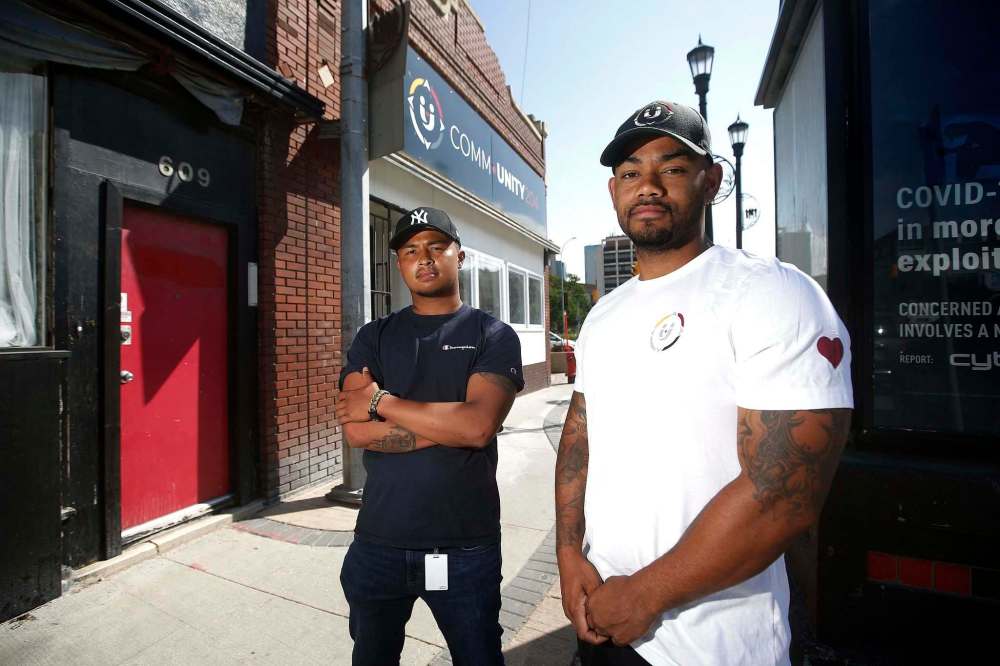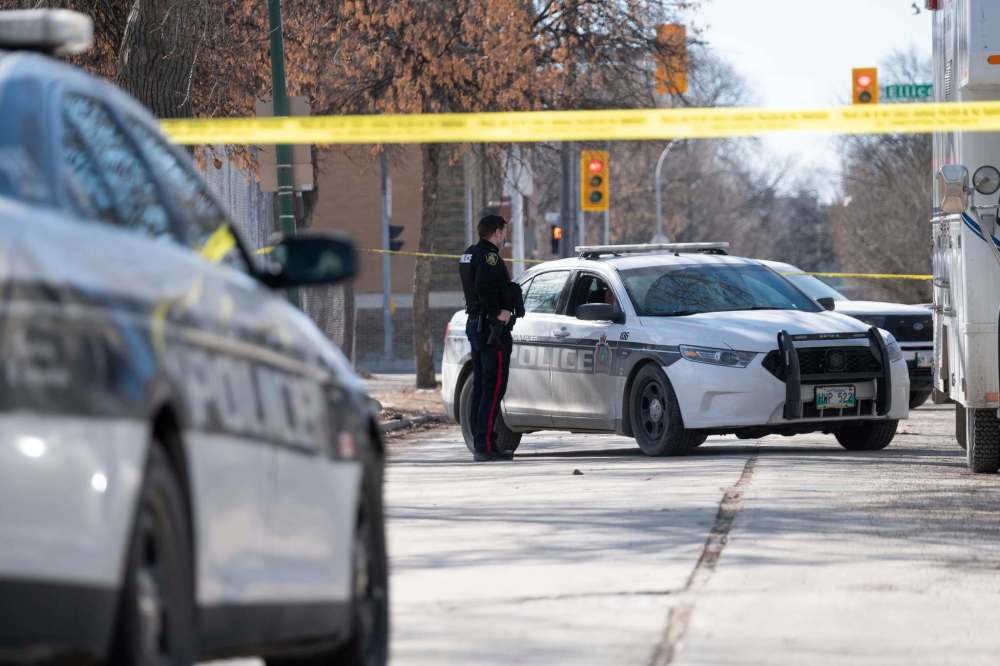To serve and diversify
Police work to attract Indigenous and other community members
Advertisement
Read this article for free:
or
Already have an account? Log in here »
To continue reading, please subscribe:
Monthly Digital Subscription
$19 $0 for the first 4 weeks*
- Enjoy unlimited reading on winnipegfreepress.com
- Read the E-Edition, our digital replica newspaper
- Access News Break, our award-winning app
- Play interactive puzzles
*No charge for 4 weeks then billed as $19 every four weeks (new subscribers and qualified returning subscribers only). Cancel anytime.
Read unlimited articles for free today:
or
Already have an account? Log in here »
Hey there, time traveller!
This article was published 11/07/2021 (1165 days ago), so information in it may no longer be current.
As part of a longstanding effort to diversify its workforce, the Winnipeg Police Service plans to hold workshops to attract Indigenous and diverse community members to its ranks.
Community leaders believe increasing diversity is a valuable goal, but say it will take more than a few new faces on the police force to build trust among non-whites.
The WPS will host two workshops: one for Indigenous people (Aug. 19-20), and one for newcomers and other diverse Winnipeggers (Aug. 24-25), said Insp. Bonnie Emerson, who leads the service’s Indigenous partnership section.

The workshops, which are scheduled to take place at police headquarters downtown as well as virtually online, are designed to prepare would-be members of the force for the physical, academic and logistic elements of the recruitment process, she said.
Const. Dirk Creighton, who has experience both on patrol and in the Indigenous partnership section, said diversification would build “transparency, but also confidence” in the service.
“People need to see people in their community doing jobs they might not have seen themselves doing,” Creighton said. “You want your services to represent your community.”
In a 2019 year-end report, 11.1 per cent of the service’s 1,359 sworn members identified as Indigenous, 7.3 per cent as visible minorities, 0.3 per cent reported having a disability and 15.8 per cent were women.
People who work with marginalized communities want to see changes that are more than skin-deep.
Rylee Nepinak of Anishiative, and Daniel Hidalgo of CommUNITY204, which are volunteer groups, see value in diversifying the service, but maintain structural change to the service’s internal culture will be necessary to garner trust between police and marginalized communities.
“It’s a step forward, but it’s not a big enough step forward,” said Nepinak. “I think the little bit of value is when you have an Indigenous youth who can see a face that’s the same colour as them in that uniform — it’s them seeing that they can be whoever they want. In terms of changing the system, reducing wasted resources and calls and reducing the amount of Indigenous peoples incarcerated, I don’t see it being really effective.”
Hidalgo noted many marginalized people he works with will also avoid calling police for help because of “bad experiences with the uniform,” leaving community support workers as de facto “gap fillers.”
As leaders of community groups, Hidalgo and Nepinak provide first-aid, crisis intervention and safe walks, as well as food and water.
As a former member of the Winnipeg Fire Paramedic Service, Hidalgo warned against “tokenizing” officers from diverse backgrounds, who may feel as though they’ve been hired to meet a diversity goal, but are not supported or understood in the workplace.
“I think it’s great that these people are trying to promote inclusivity through hiring,” he said. “But what are they doing to implement understanding of the lifestyles, struggles and actual perspectives of the people who are marginalized?
“It’s great to bring people on board, but what about the existing members… what is being done to broaden their horizons, open up their minds and change their perspectives on things?”
Changing perspectives has required “inward-facing” dialogue and training, Emerson said. Indigenous people have spoken to officers about the damaged relationships between community and police. Senior executive members have also participated in the exercise to discuss the historic context of policing in Indigenous communities.

“Modelling the behaviour is also incremental change — and that’s sort of what we’re having,” she said. “It’s not tokenism, because it’s about changing the internal culture of the organization to value, respect and see the representation.”
During decades on the service, Emerson said she’s seen an improvement in the language and behaviour of her colleagues, especially as more officers of diverse backgrounds are hired.
Nepinak stressed improved police-community relationships would come from independent, community-led initiatives, such as an Indigenous mobile crisis unit to address mental-health and well-being checks, and provide people in distress with traditional healing practices.
“It’s just conversation, understanding, and lateral empathy,” Hidalgo added. “I see you’re going through something, let me meet you where you’re at.”
Creighton said officers should attend community events to build relationships with people.
To his point, Hidalgo said opportunities exist for police to join community efforts — albeit in plainclothes, at first — in order to build relationships with community members without confrontation, and decrease people’s anxiety.
“We need a police officer to come and hand out food,” Nepinak added. “Let’s stop putting up posters of the seven sacred teachings and let’s start actually implementing them into policy.”
julia-simone.rutgers@freepress.mb.ca
Twitter: @jsrutgers

Julia-Simone Rutgers
Reporter
Julia-Simone Rutgers is a climate reporter with a focus on environmental issues in Manitoba. Her position is part of a three-year partnership between the Winnipeg Free Press and The Narwhal, funded by the Winnipeg Foundation.
Our newsroom depends on a growing audience of readers to power our journalism. If you are not a paid reader, please consider becoming a subscriber.
Our newsroom depends on its audience of readers to power our journalism. Thank you for your support.


